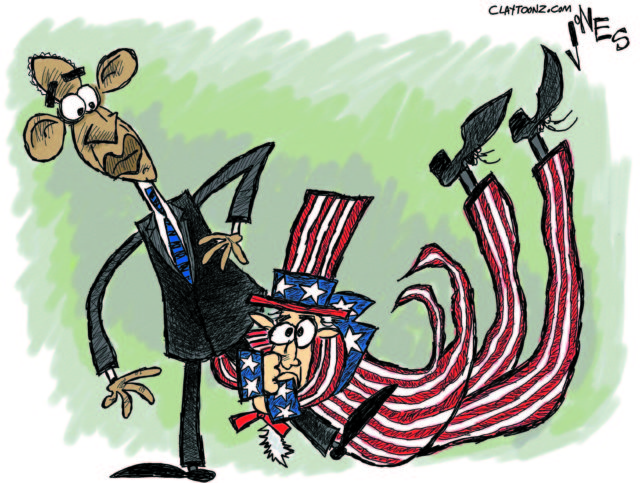
The labor movement has been reviving in recent years but now it faces stormy weather with the presidency, the Congress and the Supreme Court under Republican control.
Workers won victories under the Obama presidency as a result of executive orders and departmental regulations. There’s the new overtime rule that will double the salary threshold and give millions more workers access to overtime pay in December, although a federal judge in Texas temporarily blocked the rule with a preliminary injunction on Nov. 22.
Obama’s National Labor Relations Board produced many game-changing decisions, such as granting graduate students the right to form unions. Trump can easily reverse all of these advances. The unions spent over $100 million to elect Clinton. But she won only 51 percent among voters from union households, according to exit polls. She received 49 percent of the vote among that group in Ohio.
Christian Parenti, reporting in Jacobin, has a sour view of the Clinton campaign, which he says had been “under-resourced and poorly executed.” They had a flawed political strategy that they could ignore the white working class and concentrate on an emerging Democratic majority of women, Latinos, blacks and skilled professionals.
In July, Senator Chuck Schumer of New York said: “For every blue-collar Democrat we lose in western Pennsylvania, we will pick up two moderate Republicans in the suburbs in Philadelphia, and you can repeat that in Ohio and Illinois and Wisconsin.”
Clinton’s early get-out-the-vote effort focused on suburban Republicans because they mistakenly believed that a large portion of them might support Clinton. They neglected traditional Democratic constituencies such as African Americans and the white working class.
As a result, Clinton underperformed Obama among both groups. It seems the campaign inadvertently ended up urging Trump supporters to vote. A union staffer told Parenti that the Clinton campaigners were computer-obsessed and didn’t have too much real-world experience or street sense:
“What they seem to have missed is that the way to reach blacks, Latinos, and women is the same way you reach the white working class: progressive economics, and knock on their doors. And guess what? The allegedly ‘racist’ and ‘sexist’ white working class is cool with a multicultural coalition as long as you give them the progressive economics. On the other hand, it turns out that downplaying the progressive economics loses everyone except the skilled professionals.”
Parenti spent hours watching many full-length Trump speeches on YouTube. He agrees with other progressives that Trump is a racist, misogynist, confessed sexual predator and dangerous authoritarian.
However, he says that while Trump did talk of “walls, immigration bans, and deportations,” his main message was a phony economic populism as well as an overlooked anti-war sentiment.
Parenti says Trump has a charisma that is “a mix of almost comic self-confidence, emotional intelligence, a common touch, but also at times slight vulnerability.” By contrast, Clinton, “constrained by sexist double standards and lawyerly calculation, too often came across as bloodless … like a scripted and dissembling Human Resources manager.”
Liberal commentators didn’t understand what Trump was saying to his audience, Parenti says. After his win in the Nevada Caucus, Trump said: “We won with highly-educated, we won with poorly educated. I love the poorly educated! We’re the smartest people, we’re the most loyal people.”
Parenti notes, “Liberals lampooned him, assuming that he had insulted part of his base.” Parenti argues that people in the audience translated Trump’s comments as “Trump understands that it’s not all my fault that I couldn’t get an education. He understands that even people who don’t have advanced degrees can make good decisions and are worthy of respect.”
The Democratic Party establishment made a big mistake spurning Bernie Sanders’ “class message, ” Parenti says, adding, “Trump took the Bernie-style populism, emptied it of real class politics, reduced it to a jumble of affective associations, and used it to beat-up the smug liberals of the professional managerial class. It worked.”
The labor movement is in big trouble. This should concern all progressives since unions are the strongest force against today’s obscene economic inequality. Labor reporter Harold Meyerson points out that unions are also “the nation’s only multiracial mass organizations” and “they have more resources than any other progressive organizations.” If they disappear, progressive politics is also in trouble.
A veteran union staff member told Meyerson that Trump’s victory was “an extinction-level event for American labor.” We have to ask the Democratic Party establishment, “Which side are you on?”
This opinion column does not necessarily reflect the views of Boulder Weekly.














